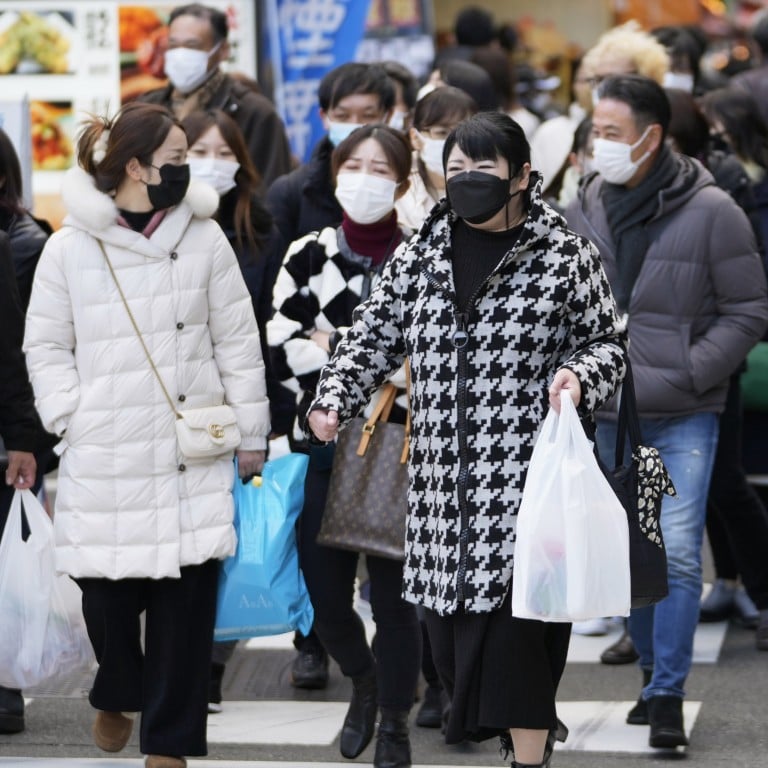
Japan downgrades Covid-19 threat, but will social ‘pressure’ to wear masks fade?
- Starting on May 8, Japan will classify Covid-19 in the same category as seasonal flu – the same day it scraps masks requirements in crowded places
- One resident says ‘pressure’ from Japanese society effectively forced people to wear masks in public the last three years, even after rules were relaxed
I cannot wait until I don’t have to wear a mask in public
Commuters will be able to decide whether to wear a mask or not, restaurants will be able to take down plastic table partitions – and maybe most importantly maskless citizens will no longer be the target of hostile stares.
“I cannot wait until I don’t have to wear a mask in public,” said Makoto Watanabe, an academic who lives in Sapporo.
“It has been three years now and I really believe it is time to relax these rules and try to return to our lives before,” he said. “We all know that masks can be helpful in preventing infections, but also that they are not 100 per cent effective in an environment like a packed commuter train, but it’s time to move on.”
Watanabe said “psychological pressure” from wider Japanese society had effectively forced people to constantly wear masks in public for the last three years, even when the outdoor rules were eased in the summer. No one wanted to be seen as the first to break what had become convention, he said.
There had been a number of cases in which people were physically attacked for not wearing a mask in public, he pointed out.
“But I think that as soon as the rules end then most people will stop wearing a mask and the social pressure will evaporate,” Watanabe said.
Hong Kong carriers forced to cancel 150 flights to Japan due to restrictions
After three years of regulations, the Japanese government’s new instruction to the public is “use your own judgment”.
The virus has not entirely gone away, however. On Monday, the ministry of health reported 21,426 new cases across the country. Those figures are down significantly from a peak of more than 261,000 infections in September of last year, yet the death toll continues to climb.
There have been nearly 68,000 deaths from the virus to date, but as of Monday more than 10,500 of those fatalities occurred in January, the first time the monthly figure has surpassed that grim threshold.
“I am planning to still be very careful as my mother is elderly and I do not want her to catch the virus at this late stage,” said Michiko Nagasaku, a homemaker from Yokohama. “She has had four vaccination shots now and my family have all had at least three, but I worry about new variants emerging or if it is combined with flu, so I think it is best for us to still be careful and wear masks.”
Asia celebrates first post-Covid Lunar New Year amid inflation woes
Hospitals and care homes for the elderly are expected to continue to require that patients, visitors and staff continue to wear masks and take other precautions, but unlike most other countries, Japanese people have been wearing masks for many years.
“It is really not a problem for most Japanese because people wore them before the pandemic, such as during the hay fever season in the spring or if they caught a cold and did not want to infect others around them,” said Nagasaku. “But I think my children will be very happy when they no longer have to wear them everywhere and all the time.”


.jpg?itok=3r1Q7lJv)